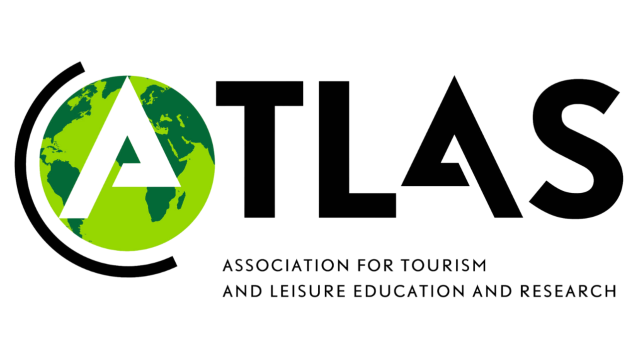Space, Place, Mobilities in Tourism
ATLAS Special Interest Group
Space, Place, Mobilities in Tourism
The coordinators for this Special Interest Group are:
Antonio Paolo Russo – Universitat Rovira i Virgili, Spain
Chiara Rabbiosi – University of Padova, Italy
Wilbert Den Hoed – Universitat Rovira i Virgili, Spain
Isabel Paulino – Universitat Rovira i Virgili, Spain
Since 2017, the new Space, Place and Mobilities in Tourism SIG has replaced the now inactive ‘Tourism Geographies’ SIG, extending its scope beyond and across disciplinary frontiers. Through the articulations of the mobilities paradigm in tourism and its connections with place‐making and place politics, the SIG emphasizes ‘tourist space’ as a producer of processes, and unravels the implications that this production can have on the social, economic, cultural and political dynamics.
The SIG has the ambition to cover the ground for conceptual and applied research opened by the mobilities paradigm and its multiple intersections with emerging ‘turns’ in social science: spatial, relational, performative, postcolonial, feminist, critical, etc. All these have opened new ground for repositioning tourism research (Richards & Russo, 2016) and for considering the politics of mobility in the tourist space: producing and regulating mobilities, resilient mobilities, spatial justice and the ‘right to the city’, accessibility and legitimating difference, diversity and heterogeneity.
The SIG aims to generate new and exciting knowledge about place as continuously moulded by the interventions and actuations of different mobilities: human and nonhuman, social and technical, physically material and dematerialized, and imaginative. It also explores how the epistemologies involved by the new turns in the Social Sciences and Humanities may be making room for a transformative agenda ‘from below’ of the tourist space and for subversive policy frameworks, whose logic is to accommodate diverse mobilities in a ‘common space’ founded of the legitimation of multiplicity and difference.
The scholars that take part in the Space, Place, Mobilities in Tourism SIG include highly recognised senior experts in the fields involved and emerging researchers with a sincere desire to break through mainstream conceptualisations in tourism and place studies. Most are active in several high-level international networks. This guarantees that the activities of the SIG will have ample resonance in the broader scientific community and will be published in international journals. However the SIG will also care about establishing connections with the civic society – grassroots organizations, placemakers and governments – who are engaged in the debate about ‘what is (and what should be) tourism today’.
Objectives
The overarching aims of the group are thus:
- To foster the development of the broad field of mobilities within tourism studies as inflated in recent years by the trans- or post-disciplinary shifts;
- To produce conceptual and applied research on tourism mobilities which bridge academic knowledge with the societal concerns arising around tourism in the contemporary age;
- To make ourselves useful to – and heard by – civic and political organisations currently engaged in a debate on tourism and place;
- To promote collaborative research activity and academic events and publications in the field mentioned above as it is customary for the ATLAS SIG groups
Key topics
The SIG engages with a large variety of topics concerning space and place, performances and bodily practices, socio-technical systems, as they are enacted tested through, and entangled with, tourism mobilities:
- Experiences, negotiations and resignifications of mobilities infrastructures (material, digital, hybrid)
- Slowing downs, frictions and immobilisations in tourism
- Overlappings and intersections between tourism mobilities and other mobilities (migratory, labour, lifestyle, etc.)
- The nexus between social and spatial mobility in tourism
- New forms of tourism and touristification and their implications on mobiliy justice
- The semiotics of tourist mobilities and tourist spaces: cosmopolitanism, cultural enclaves, cultural conflict and place legibility
- Technical analyses of mobilities, their determinants and their effects end engagements with space and society
If you want to contact the SIG coordinator, please fill in the form HERE
If you want to join this SIG, please fill in the form HERE
Annual review of activities 2024
The activities of this SIG over the last year have been the following:
- Successful conclusion of a Special Issue publication, drawn from the contributions submitted and/or presented at our Special Track at the 2021 SPMT seminar. Eventually the SI in Tourism Geographies (https://www.tandfonline.com/toc/rtxg20/25/7), published in February 2024, includes six papers and an editorial paper, the latter explicitly referring to the ATLAS seminar and SIG. A Tourism Geographies podcast presenting the Special Issue (with A.P. Russo and C. Rabbiosi interviewed by M. Roelofsen) has been recorded and diffused and will be published soon in http://www.tgjournal.com/
- Editorial work in progress for a Special Issue in Applied Mobilities (editors K. Hannam and P. Merriman) drawn from the contributions submitted and/or presented at our Special Track at the 2022 Cork congress. 9 papers have been submitted and are currently in the process of revision. The SI will also include an editorial paper of the SI coordinators (W. Den Hoed, A. P. Russo, C. Rabbiosi, I. Paulino).
- An organisational meeting of the affiliated members of the SIG has been carried out on October 20 2023, and 25 people have participated, discussing new initiatives and events.
- Special track convened at the 2024 annual meeting in Breda, co-organised between our SIG and the Climate Change and Tourism SIG (convenors I. Farsari, W. den Hoed, A.P. Russo). 21 contributions submitted, 8 confirmed and registered. There are plans underway for a special issue project with some journal with contributions drawn from this session,
- The special track in Breda will include an organizational meeting of the SIG. In that occasion we will discuss new initiatives and events. In particular we would like to foster the mobility of young researchers and PhD candidates between the centres covered by the SIG network to work on specific projects or give or take part in research seminars.
- Plans are underway to present a new special track of the SIG at the 2025 event in Vila-seca hosted by URV.
